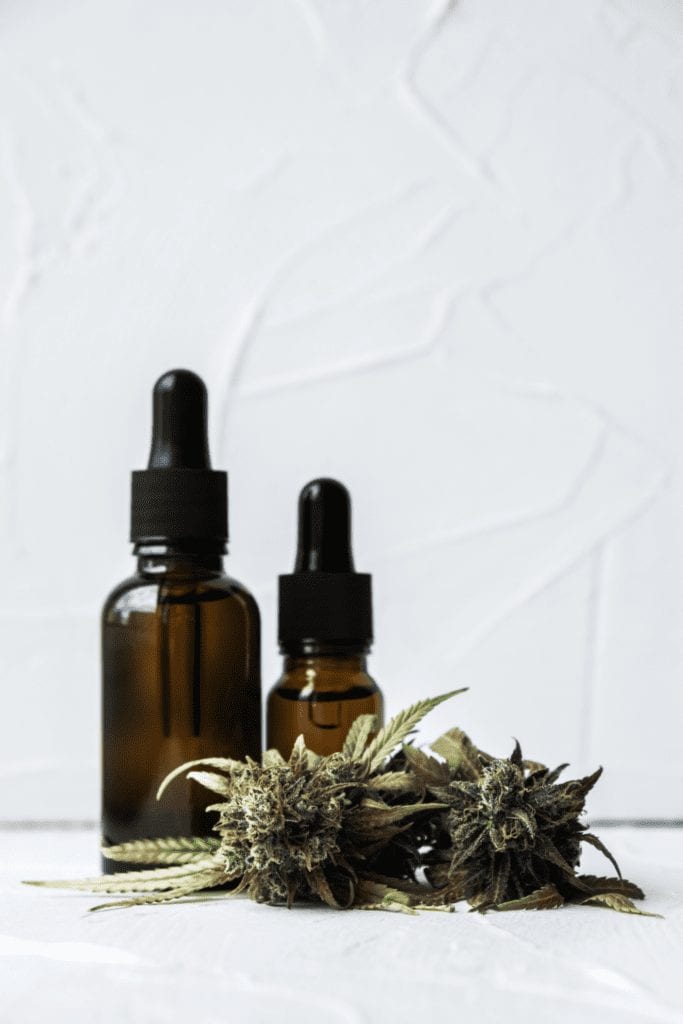What is mental health?
Your mental health has many moving pieces. When any component of your health changes, your mental health becomes vulnerable. Mental disorders can occur in your life at any time and can endure for an entire lifetime if not properly managed.
he most common forms of mental disorders include anxiety, depression, and unspecified depressive disorders. These conditions continue to carry a stigma, but fortunately, the negative stigma is lessening every day.
Now, more than ever, health care providers, workplaces, and family and friends are becoming more educated on the importance of mental health. While you educate yourself on how to improve your mental health, pass on the wealth of knowledge. I guarantee you many people could benefit from including different supplements to improve their mental health too!
Up until recently, [nutrition] has been the missing piece in mental health treatment.
Dr. Leslie Korn
Symptoms of declining mental health
It can be difficult to pinpoint the exact moment your mental health starts to decline. Unless there is a specific triggering event, most people do not notice their fading mental resilience until they are experiencing full-blown burnout.
Common symptoms include: no longer being interested in things that used to give joy and choosing to sleep all day despite being fully rested. Anxiety-prone individuals may lose sleep, lose hair, and lose their appetite.
If you notice any obvious changes in your behavior or your physical status, consult with your medical care provider. Having an expert assess you will be helpful to properly identify the mental disorder you may be experiencing. When we know what is wrong, we can more appropriately treat the condition.
How can you improve your mental health?
If you think it is helpful, continue to meet with a specialist or counselor to support you. While working with a professional, make sure you spend some time assessing your daily lifestyle too. There may be areas in your current routine that could benefit from some love and attention.

You may consider improving your sleep habits. Good sleep hygiene is really important. Try to keep a consistent sleep schedule because your brain needs rest. Avoid technology and caffeine before bed to promote more restful sleep.
Increase your physical activity. You do not have to include a grueling workout every day, but try to move for at least 20 minutes a day.
Review your diet. The food you eat directly impacts your health, your sense of well-being, and your mental health. Your brain and your gut are directly responsible for communicating and producing hormones that make you feel happy. Make sure your diet is optimized to be conducive to excellent mental health.
Dietary steps to manage your mental health
Irregular eating can exacerbate symptoms of poor mental health. When you do not eat consistently throughout the day, you are more likely to experience low energy, low mood, and increased irritability because you are hangry!
An ideal schedule may have someone eating every 4-6 hours. This is recommended for optimal blood sugar control, which directly affects your energy levels. You do not need to eat big meals at each eating interval, but try to include a handful of nuts or even a piece of fruit.
Appetite is a stimulus that will disappear when it is obeyed inconsistently. So if you have been living your day-to-day with large gaps of time in between meals, you may not even feel the sensation of hunger anymore. Try to introduce snack breaks throughout your day, and eventually, your body will re-learn how to feel hungry again.
Eliminate junk food and processed foods as much as possible. These foods provide you with a quick zap of energy, but it is fleeting. These foods will spike your sugars, and the higher the climb, the greater the fall. These significant fluctuations in energy worsen your mood and will leave you feeling exhausted and mentally drained.
As well as junk foods and obvious processed items, eliminate cigarettes and alcohol. These two items contain ingredients that repress appetite, mood, and energy. They are named ‘downers’ because they bring everything down. If you are trying to lift your spirits, you can see how these items would make it especially difficult.
Specific vitamins/minerals you need to improve your mental health
There are many positives to improving your diet. Research supports the inclusion of specific nutrients and vitamins to improve mood. People who are deficient in these nutrients are at high risk of depression and anxiety.
This is so exciting! Food is powerful, and if you eat a balanced diet, you may not need to take a supplement.
If you follow dietary restrictions or if your eating is all over the place, you would benefit from using supplements. You have the highest chance of improving your mood if you pick healthy foods adjunct to nutritional supplements.
- Vitamin D
Vitamin D is the sunshine vitamin! When sunshine hits your skin, it activates a biochemical reaction that produces vitamin D. This happy little vitamin can decrease the severity of depression when the supplement is taken consistently. Vitamin D also helps with bone health, immune function, and brain health. - Zinc
Individuals with low zinc levels are at higher risk of depression and anxiety. Food sources of zinc include legumes and red meat. If you are vegetarian or impartial to red meat, you may be at risk for low zinc.
A zinc supplement can help improve mood, improve immune function, and also helps with wound healing. Zinc supplements will appeal to anyone who has recently had surgery and is recovering from a wound. - Magnesium
Magnesium is researched heavily for its calming effects on the body. It is involved in regulating sleep, and many people use a magnesium supplement at night to help their bodies relax and prepare for rest.
Proper sleep is essential for improving mental health. Without adequate rest, your brain can not logically process information. Instead, you will react emotionally, which is draining. Taking a magnesium supplement can help reduce the prevalence of depression and migraines. - Iron
Iron deficiencies are known to cause a decreased state of mental well-being. When you have low iron, you are at risk of becoming full-blown anemic. Women who endure regular heavy periods are at high risk of becoming anemic. Vegan or vegetarian people are also at elevated risk of low iron.
Iron is very difficult for the body to absorb, and sometimes relying on food sources is not enough. If you suffer from low energy, chronic fatigue, and dark circles under your eyes you may be showing symptoms of low iron. You must complete blood work before starting an iron supplement. You are at risk of iron toxicity if you take a higher dose of iron than you need. - Vitamin B12
Similar to iron, low levels of b12 can also develop into a type of anaemia. People with low b12 present with low mood, tingling in their extremities (like their fingers), and even get canker sores.
Food sources of b12 include all meat and seafood products, animal by-products such as eggs or yogurts, and nutritional yeast. People who follow vegan and vegetarian diets should take a b12 supplement right away.
Over time, the body loses its ability to efficiently absorb b12. Senior citizens are at high risk of b12 deficiency and prone to depression. They should take a supplement every day, even if they eat meat regularly. - Selenium
You may have never heard of selenium before. It is most popularly found in fish, meats, seeds, and nuts (specifically the Brazil nut). Unless you live in a coastal region, it is unlikely you eat fish consistently throughout the year.
Low levels of selenium can increase your susceptibility to mood disorders and depression. Improving your diet as well as taking a supplement can help your mental health. - Omega 3 Fatty Acids
The ultimate nutrient that can help with mood, brain health, and even reduce inflammation in the body is omega-3-fatty acids. This long-chain fat is potent and exceptionally nourishing for the body. It can be conveniently taken through capsules or syrups. The modern-day fish supplements are flavored, which disguises any fishy taste.
Food sources of omega 3 include walnuts, flax seeds, and also salmon and trout. If you do not like eating fish, you should consider taking a supplement because the plant sources of omega 3 (such as walnuts) may not be potent enough to influence your health.

Include healthy fats
Your brain is primarily made up of fatty tissue. When it comes to this vital organ, you are what you eat! Imagine how much better your brain would operate if it was consistently supplied with only the highest quality ingredients. It would function a lot better than a brain that is being forced to rely on building materials from instant ramen, fast food, and bottomless ice cream.
High-quality fats are also called unsaturated fats. Food examples that are high in unsaturated fats include nuts, seeds, avocados, olive oil, and many other plant-based oils. The next time you shop, take some time to properly read the nutrition label. Pick products that have low levels of saturated and trans fats (<5% DV), and high levels of unsaturated fats (>15% DV).

Prioritize your gut health
Your digestive system, shortened to just your ‘gut’, sends signals to your brain to create serotonin. This is a happy hormone, which is usually suppressed during bouts of poor mental health. To increase the production of serotonin, you need to take good care of your gut!
Similar to your brain, your gut reacts poorly to irregular eating habits, poor food choices, unmanaged stress, an inconsistent sleep schedule. When you make the changes listed in this article you can anticipate an improvement in your gut health, which increases your quality of life.
If you continue to notice symptoms of an unhappy gut, like bloating, gas, or unusual bathroom habits, you may benefit from including a probiotic into your daily routine. These concentrated tablets contain incredibly high doses of healthy bacteria which flourish in your gut and will restore the healthy ecosystem into your digestive tract.
Healthy bacteria in your gut feed off of fiber in your diet. If you do not think you are eating enough fiber (you can easily track your intake using free apps like my fitness pal), you may benefit from also including a Prebiotic. These supplements provide the essential fiber your gut bacteria need to flourish, which will result in an increased mood

Herbal remedies for mood
CBD products are extremely popular options on the market that can manage and reduce levels of anxiety. THC products contain the potent active compounds of cannabinoids, but do not provide the user with any ‘high’ sensations. This makes it a very appealing option to people who want to use the product but need to remain alert during their day.
CBD products can be administered in many different forms, but the most popular option includes a diluted solution that can be ingested using a dropper. You do not need to use a lot of THC to get the benefits of this product. Consistent usage will result in more significant improvements in mood and anxiety, so try to use the product for at least 30 days and assess how you feel.
Herbal teas, such as chamomile, mint, and dandelion can also reduce anxiety. These non-caffeinated products having calming properties that can help you to relax. The body also responds positively to warming foods and drinks, and hot tea can be very comforting.
Ginseng products, such as elixirs or syrups, have also been used throughout history to optimize health overall. Eastern practices believe that a strong mind will result in a strong body, which sounds very consistent with how we approach mental health in 2021! Consider using this natural product to help improve your mood.
In summary
Mental health is a multi-factorial system in your health. There are many variables in your daily life that can support your mental health. If these factors are not properly cared for, your mental health can suffer.
Mental health conditions can feel very isolating. Make sure you reach out to support professionals who are trained to help you during this difficult time. While working with professionals, focus inwards, and spend time making changes in your daily routine. Modify your sleeping schedule to increase the hours you spend resting. Unplug from electronic devices early in the evening, and consider adding a magnesium supplement to your nighttime routine.
Add more physical movement into your life in any form that is most pleasurable for you. Small bouts of consistent movement can significantly improve your mindset.
Prioritize making dietary changes. Review your diet and make sure you are getting enough variety to satisfy all the vitamin and mineral requirements for an excellent mood. If you suspect you need a supplement, consult with a pharmacist for the best product that can help you.
Your health is significantly impacted by the foods you put into your body. When you feel low, it is easy to let your nutrition fall to the side. Now that you know how vital the different nutrients, carbs, and fats are for your mental health, I hope you feel more motivated to improve your diet!
Ditch the easy-to-grab junky foods, and choose a fuel that will sustain you throughout the day. Your brain, body, and spirit will thank you for it!
References:
1. Food and Mood – UK resource https://www.bda.uk.com/resource/food-facts-food-and-mood.html
2. Magnesium and risk of depression in adults https://pubmed.ncbi.nlm.nih.gov/25748766/
3. Low levels of vitamin D and risk of depression https://pubmed.ncbi.nlm.nih.gov/25748766/
4. Serotonin and gut health https://pubmed.ncbi.nlm.nih.gov/25078296/
6. Relationship between diet, stress, and health https://pubmed.ncbi.nlm.nih.gov/32823562/
7. CBD for mood and psychiatric disorders https://pubmed.ncbi.nlm.nih.gov/33228239/




